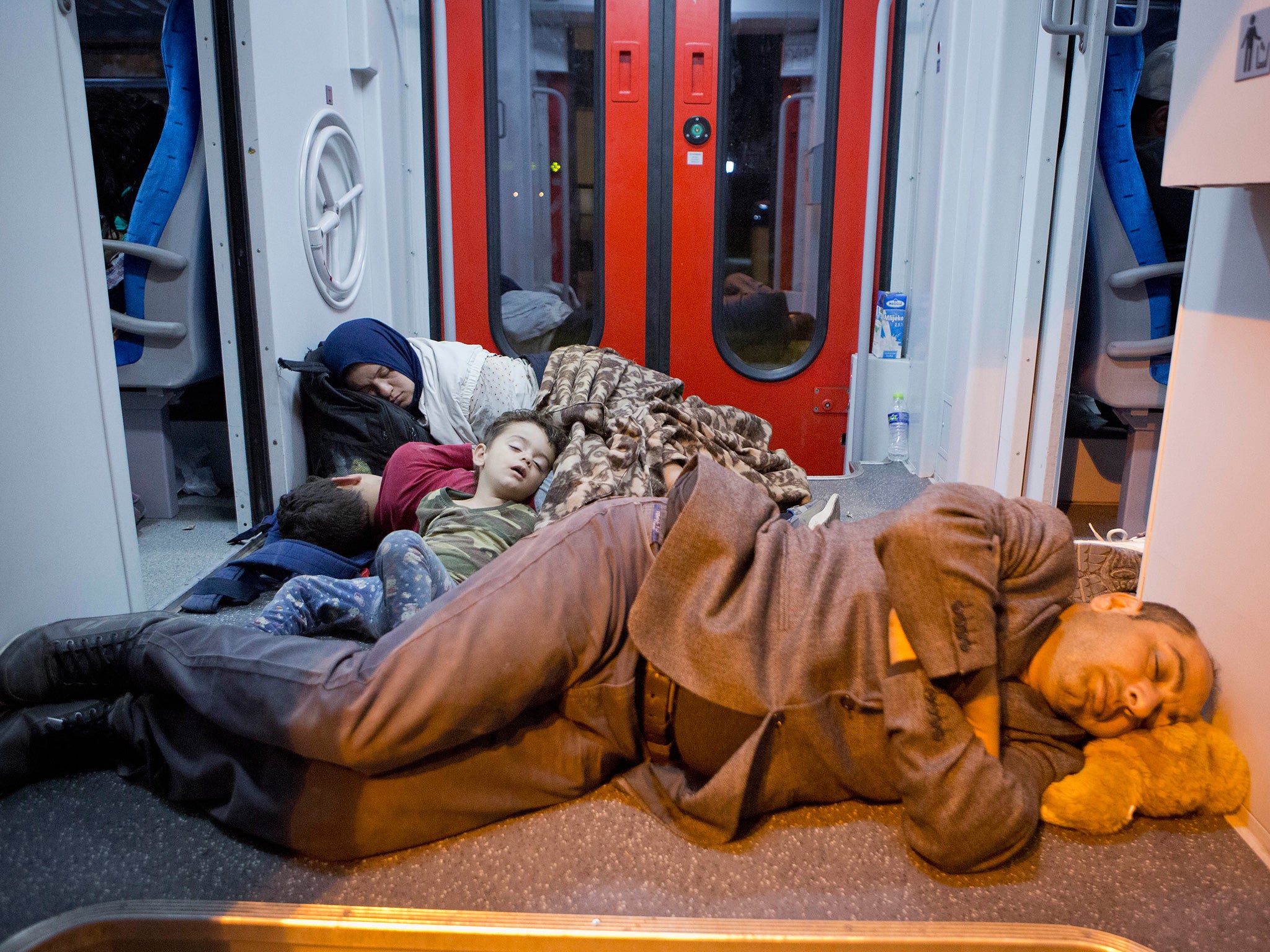Every evening I spend welcoming refugees reminds me how different my experience as a migrant was
When I moved to Amsterdam, I was greeted with luxury and smiles. But now refugees are piling in to the station, cheery welcomes have become grim silences

Your support helps us to tell the story
From reproductive rights to climate change to Big Tech, The Independent is on the ground when the story is developing. Whether it's investigating the financials of Elon Musk's pro-Trump PAC or producing our latest documentary, 'The A Word', which shines a light on the American women fighting for reproductive rights, we know how important it is to parse out the facts from the messaging.
At such a critical moment in US history, we need reporters on the ground. Your donation allows us to keep sending journalists to speak to both sides of the story.
The Independent is trusted by Americans across the entire political spectrum. And unlike many other quality news outlets, we choose not to lock Americans out of our reporting and analysis with paywalls. We believe quality journalism should be available to everyone, paid for by those who can afford it.
Your support makes all the difference.I first moved to Amsterdam late on a rainy Friday night in January. I knew that I had to take a train to Amsterdam Central Station but had no idea if I could carry my bags as far as the station, where the train station was or if there even were trains this late at night.
In the middle of my mounting panic a cheery chauffeur approached me and explained that my partner’s company had hired car for us, an SUV with a furry interior and surround sound blasting Taylor Swift. And that was my introduction to life in Amsterdam. Drifting along, helped and welcomed by a series of smiling Dutch professionals until my life here just sort of fell into place.
20 months later and it’s another rainy Friday night in Amsterdam. The last train from Frankfurt is due in 20 minutes, at 12.10am, and I am wandering around the station, holding up a sign that proclaims “Welcome, we are here to help you” in English, French and Arabic. The man I am walking around with has a matching sign and we are both clutching bottles of water to hand out as part of a welcome committee for the refugees who have been arriving at the station all night. They are wearing their best clothes, carrying everything they own in bursting carrier bags and straining rucksacks. They are dehydrated, exhausted, quite often in need of medical attention and with no idea of what to do next.
A few weeks ago, activists realised that refugees were arriving at in Amsterdam CS after all the shelters were closed and, with no obvious help available, they were capping off weeks of travelling by sleeping in the station. When it became clear that there was no official structure in place to help the refugees or transport them to a shelter Amsterdam locals picked up the slack. They organized collections for the refugees, piles of food, water, toys for the children. They met every international train with welcome signs and directions to the nearest refugee centre. In short, they did exactly what concerned citizens across Europe have been doing for weeks as part of the #RefugeesWelcome campaign.
I knew before I arrived at the station that I would not be able to interview the men, women and children I met. My job was to hand out water, to smile, to say welcome to Amsterdam and to help them avoid spending the night surrounded by aggressive drunks. Talking is fine, whipping out a dictaphone and asking a million questions is not. Helping to facilitate things like food, water and rest after a long journey, feels like very important work. But it also feels like the most basic level of humanity that could possibly be required of me.
At the end of the night I will go back to my warm apartment, leaving the Eritrean and Syrian refugees I’ve met behind to try and reconnect with their lost family members and navigate the infamously unfriendly Dutch asylum system. My phone is full of Facebook messages from friends, asking what the evening has been like and how they can help. An Egyptian friend offers his services as a translator, a nurse asks if there’s enough medical support at the station, two other friends have already signed up to help do the rounds this coming weekend.
But my life outside Facebook is full of people who rush to tell me that the refugees are lying about where they come from. People who believe that we should close our borders, build our own fences. It is a life full of Dutch officials who greet me with smiles but whose mouths turn down when I talk about the refugees I’ve met. My life is full of people who’ve kept silent, turned their heads, and ignored the very slim line that separates us wealthy immigrants from the impoverished refugees on our screens and sleeping in the streets.
I don’t think I’m any better or worse than those people. Like I said: greeting refugees at Amsterdam CS feels like a pretty basic thing to do. But every evening I spend in that station reminds me that my warm welcome to Amsterdam was down to the size of my salary and the colour of my skin.
Join our commenting forum
Join thought-provoking conversations, follow other Independent readers and see their replies
Comments